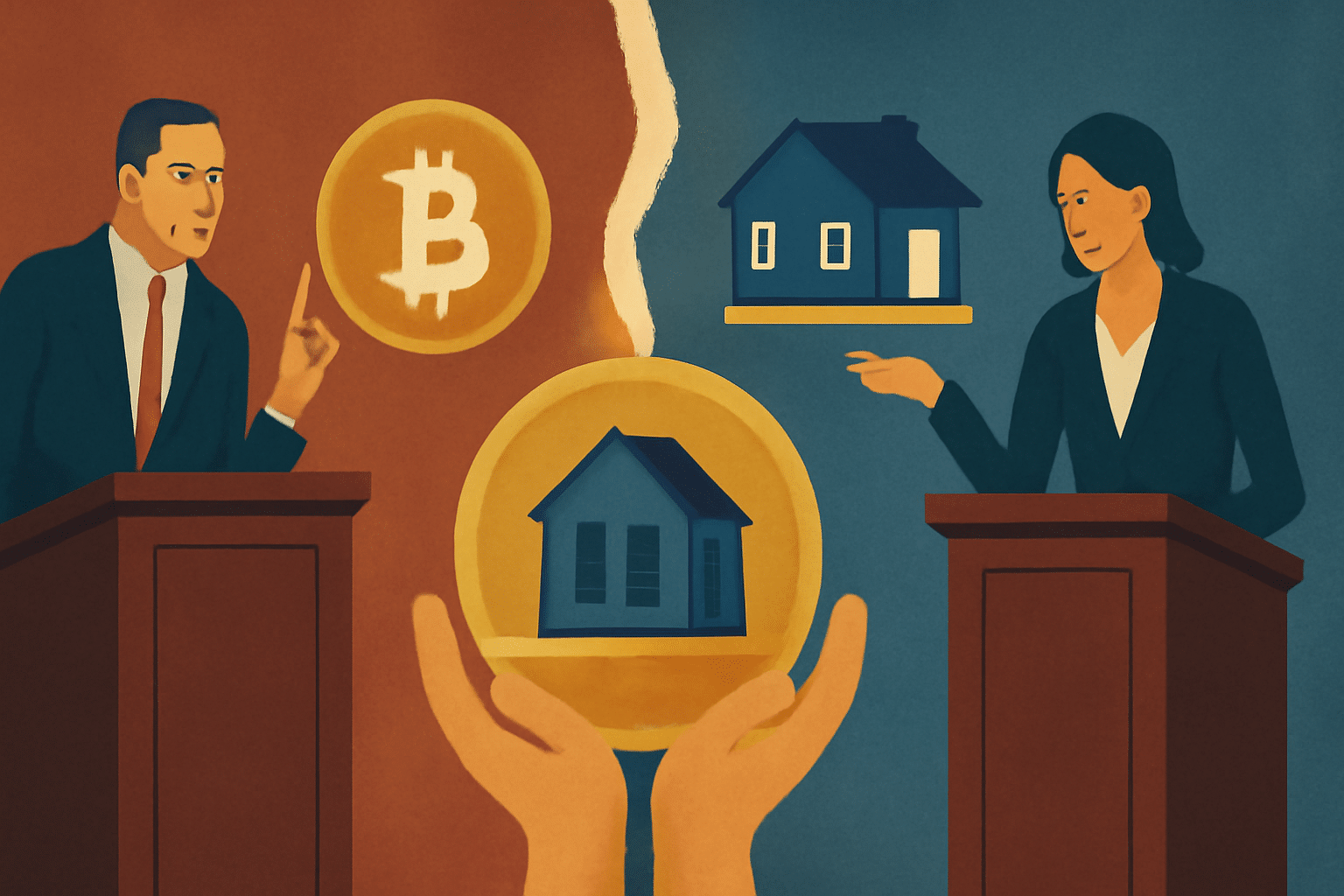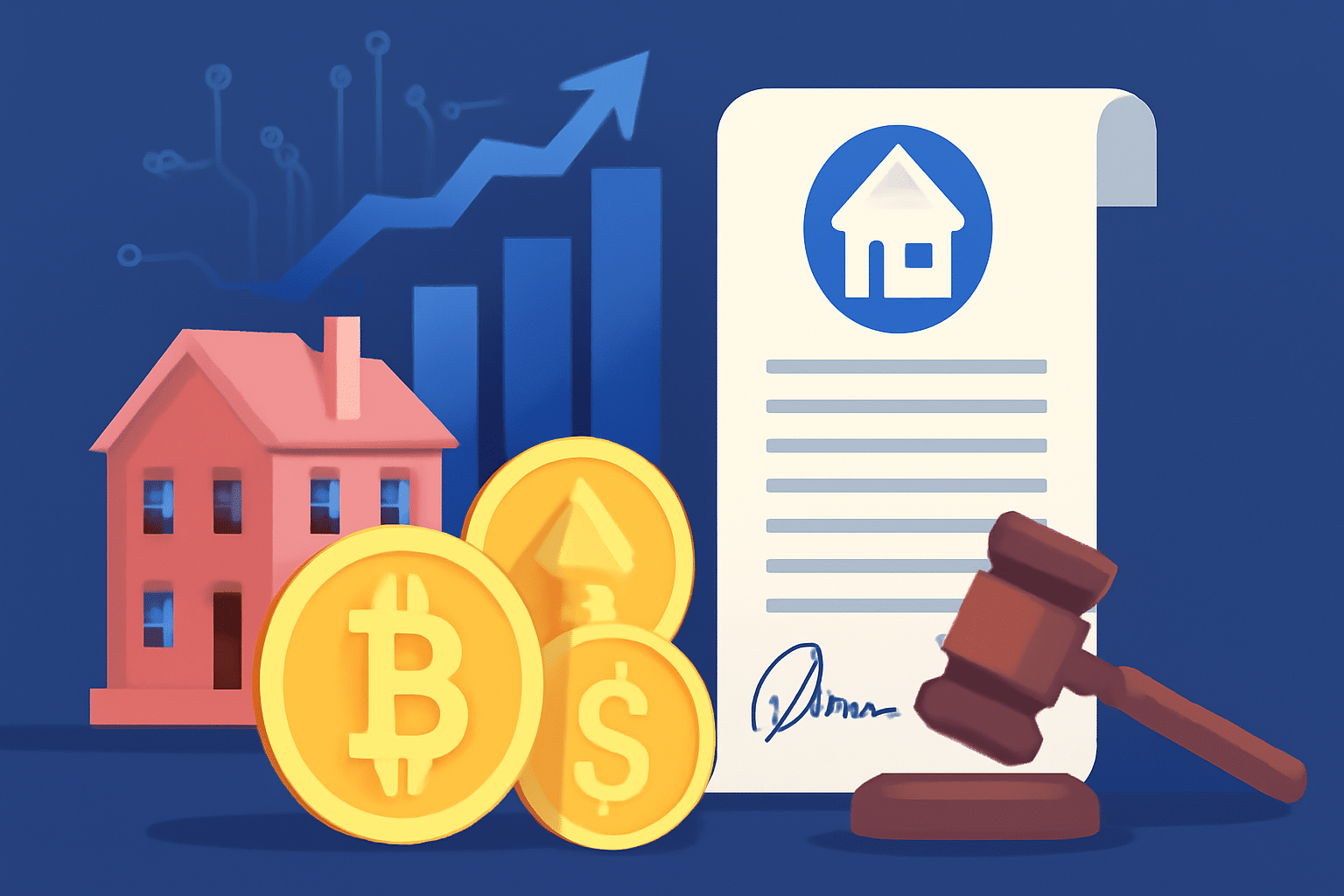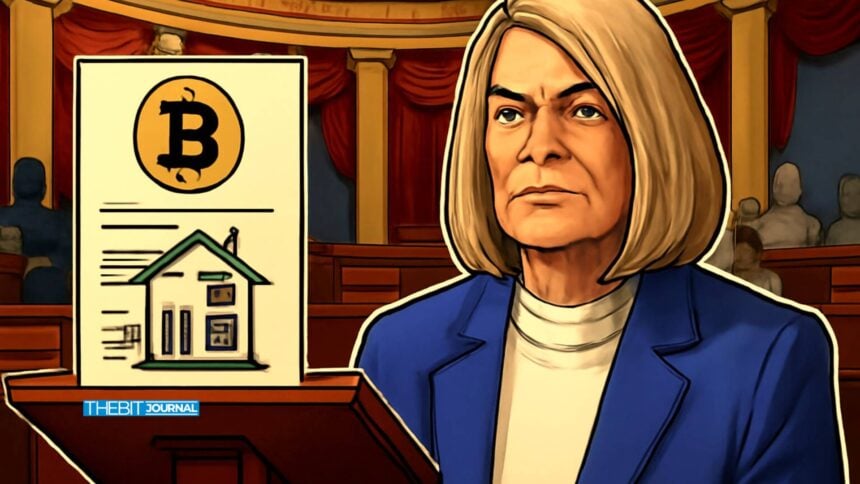Senator Cynthia Lummis has introduced the 21st Century Mortgage Act, aiming to codify a recent regulatory order regarding digital assets. The crypto-mortgage bill would require mortgage purchasers to assess cryptocurrency holdings as assets during loan evaluations.
The legislation directly addresses growing housing access issues among young Americans who increasingly hold digital assets.
Law Proposes Crypto as a Recognized Mortgage Asset
The proposed crypto-mortgage bill follows a June directive from the Federal Housing Finance Agency (FHFA) to mortgage giants Fannie Mae and Freddie Mac. This order mandates that they consider cryptocurrency holdings when assessing single-family mortgage loan applications. Lummis’ bill would enshrine that requirement into law through congressional action.
She described the legislation as “an innovative path to wealth-building” for younger Americans often priced out of homeownership opportunities. US Census Bureau data shows that only 36% of Americans under 35 own homes as of Q1 2025. The crypto-mortgage bill aims to change that by letting borrowers leverage crypto holdings without liquidating them.
Proud to introduce the 21st Century Mortgage Act to make homeownership more accessible for young Americans who are embracing the digital age. More below. ⬇️ pic.twitter.com/He5ijtam4A
— Senator Cynthia Lummis (@SenLummis) July 29, 2025
Critics warn of the risks involved, especially due to the volatility and liquidity of crypto assets. In a joint letter, Senate Democrats urged FHFA Director William Pulte to evaluate potential systemic impacts fully. They emphasized that price swings could increase the risk of mortgage default for borrowers who rely on unstable crypto reserves.
Lawmakers Split Over Crypto Use in Housing Loans
Several Democratic lawmakers oppose the crypto-mortgage bill, expressing concerns about long-term financial risks to the housing market. They argue that the move may introduce untested volatility into the mortgage system. The letter from Democrats dated July 24 outlined the need for a detailed risk assessment.

Despite this, Lummis continues to push forward with the bill, confident in its potential benefits for financially underserved populations. She emphasized that crypto-backed evaluations would expand access without forcing asset conversion. The approach also relieves pressure on borrowers who hesitate to cash out during market lows.
House Republicans have proposed a similar version called the American Homeowner Crypto Modernization Act. Representative Nancy Mace introduced the bill, which also mandates consideration of digital assets in mortgage lending. Her version would apply specifically to assets in brokerage accounts linked to crypto exchanges.
Crypto-Mortgage Bill Part of Broader Digital Finance Push
The crypto-mortgage bill is one of three crypto-related proposals the Senate may address after its August recess. Alongside this, Senator Lummis is co-sponsoring a digital asset market structure bill to regulate trading frameworks. Another pending bill seeks to prevent the Federal Reserve from launching a central bank digital currency.

Interest in crypto-backed home loans has also emerged internationally. Australian company Block Earner recently announced plans for Bitcoin-backed mortgages. The announcement came after the Federal Court of Australia ruled the company’s crypto products did not count as financial instruments.
If passed, the crypto-mortgage bill would significantly shift how digital wealth is treated in US lending. The proposal may reshape home loan approvals and modernize the outdated credit evaluation system. However, it must first navigate political hurdles and secure bipartisan support.
Summary
The 21st Century Mortgage Act, introduced by Senator Cynthia Lummis, aims to legally allow mortgage lenders to consider crypto holdings as borrower assets. It responds to a new FHFA directive involving Fannie Mae and Freddie Mac. While House Republicans support the move with a similar bill, several Senate Democrats urge caution over potential financial risks.
For more crypto news, visit the platform.
FAQs
- What is the crypto-mortgage bill?
The crypto-mortgage bill is proposed legislation that requires mortgage lenders to consider cryptocurrency assets in home loan applications.
- Who introduced the crypto-mortgage bill?
United States Senator Cynthia Lummis proposed the 21 st Century Mortgage Act which was addressed to an FHFA June 2025 order.
- What have been cited as reasons by some law makers against the bill?
Other Democratic senators mention that it may place more risks in the housing market as the price of crypto is volatile and there are liquidity concerns.
- Is there a like bill in the House?
Yes, the American Homeowner Crypto Modernization Act by Representative Nancy Mace had the same crypto-assessment provisions.
- What is the schedule of the bill in the Senate?
The crypto-mortgage bill will be reviewed after the Senate reconvenes following its August recess.
Glossary of Key Terms
Crypto-Mortgage Bill: A legislative proposal requiring crypto asset evaluation during mortgage assessments.
Digital Assets: Offline assets that are non-corporeal in nature, like cryptocurrencies such as Bitcoin, and they are stored on blockchain networks.
FHFA: The Federal Housing Finance Agency, the regulator over Fannie Mae, and Freddie Mac.
Fannie Mae and Freddie Mac: are government-guaranteed mortgage institutions, where loans are sold to lenders to denote fluidity.
Fiat Currency: Fiat currency is traditional state-issued money that is not apportioned to a tangible commodity, such as the US dollar.
References:





























